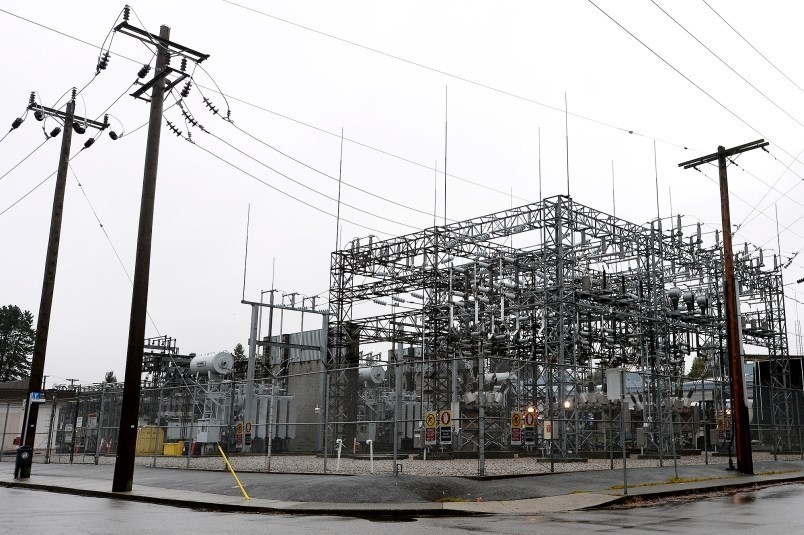The average New Westminster household will pay an extra $225 for utilities in 2024.
At a Nov. 27 budget workshop, city staff presented council with an overview of the proposed operating and capital budgets for the utilities – water, electric, sewer and solid waste. At that meeting, council directed staff to prepare the necessary bylaws to amend the city’s utility rates for 2024 – rates it later approved.
Council has approved the following increases for utilities, effective Jan. 1, 2024: electric – 3.3 per cent; water – 6.0 per cent; sewer – 8.0 per cent and solid waste – 12 per cent. Combined, staff say the increases have a “blended rate” of six per cent.
Staff reports to council outlined the costs factoring into the utility rates:
Electrical rates
Electrical rate: increase in the cost to purchase power from BC Hydro – $0.6 million; fixed cost and salary increases – $0.3 million; new operating expense service enhancement requests – $0.7 million; proposed capital spending – $35.8 million. A 3.5 per cent climate levy on electrical billings will also remain in place.
A staff report stated the 3.3 per cent increase to the electric utility in 2024 would be followed by 3.5 per cent increases in the years to follow, which would “build financial capacity” to fund capital projects to increase the city’s electricity supply, including a new substation in Sapperton.
“A 3.3 per cent to 3.5 per cent rate increases is aligned with the city’s reserve management policy that recommends maintaining a reserve balance of five per cent to 10 per cent of the electrical fund assets current replacement value by 2024, after funding the advanced metering infrastructure project,” said the report.
According to a staff report, the electric utility has historically had abundant capacity to service the demand in the city.
“However, it is now faced with the challenge of meeting the electrical needs of their customers in a landscape of greater demand for electrification, increasing low-carbon energy mandates, electric mobility, electric space heating systems, addressing a housing crisis with mandated municipal housing targets, alleviating extreme heat impact on habitability of existing residential buildings, and increasing climate resilience with adaptation, all while advocating for sustainable clean energy and conservation,” said a staff report. “As such, there will be growing emphasis on long-term planning and capital investment in order to meet these growing demands in the future.”
New West Progressive councillors Daniel Fontaine and Paul Minhas voted against the electrical rates because of concerns about the inclusion of a 3.5 per cent climate action levy.
Water rates
Council has approved a six per cent increase to the water utility rate for 2024. Six per cent increases are also projected for the years 2025 through 2028.
The water operating and capital budget reflects includes $0.6 million in projected increases in the purchase of water from Metro Vancouver, fixed cost and salary increases of $0.1 million, new operating service enhancements of $0.1 million and capital spending of $12.3 million (for replacement of end-of life city water mains, additions to meet future population growth and replacement of vehicles)
A staff report stated that Metro Vancouver is revising its development cost charge program to shift “growth costs” from residents to development. While this means a “reduction in the projected Metro Vancouver levy increases” to the City of New Westminster, staff told council it’s “prudent for the water utility to continue to shore up its reserve levels to mitigate against any future risk” in case Metro Vancouver is unable to collect the DCCs as projected and transfers the shortfall back to municipalities.
Sewer rates
An eight per cent sewer utility rate increase has been approved for 2024, with similar rates projected in future years.
The sewerage and drainage utility operating and capital budget includes: $2 million for increase sewer levies to Metro Vancouver (which represents 74 per cent of the utility’s operating expenses); $0.2 million for fixed cost and salary increases; $0.2 million for new service enhancement requests. It also includes proposed capital spending of $19.5 million, which includes the sewer separation program, the West End sewer separation program, flood management, pump station upgrade and the sewer rehabilitation program.
Like the water reserves, the city’s reserve management policy recommends maintaining a reserve balance of five to 10 per cent of sewer fund asset’s current replacement value.
Solid Waste
Solid waste utility rate increases of 12 per cent have been approved for 2024, with 12 per cent increases proposed in 2025 and 2026, followed by eight per cent increases in 2027 and 2028.
The 2024 solid waste utility budget take incite account factors such as increasing in Metro Vancouver’s tipping fees, fixed cost and salary increases and proposed capital spending of $1.2 million.
Approval of the utility rates was the first step in the city’s budget approval process, with council expected to finalize the operating budget and the capital plan in January 2024.




